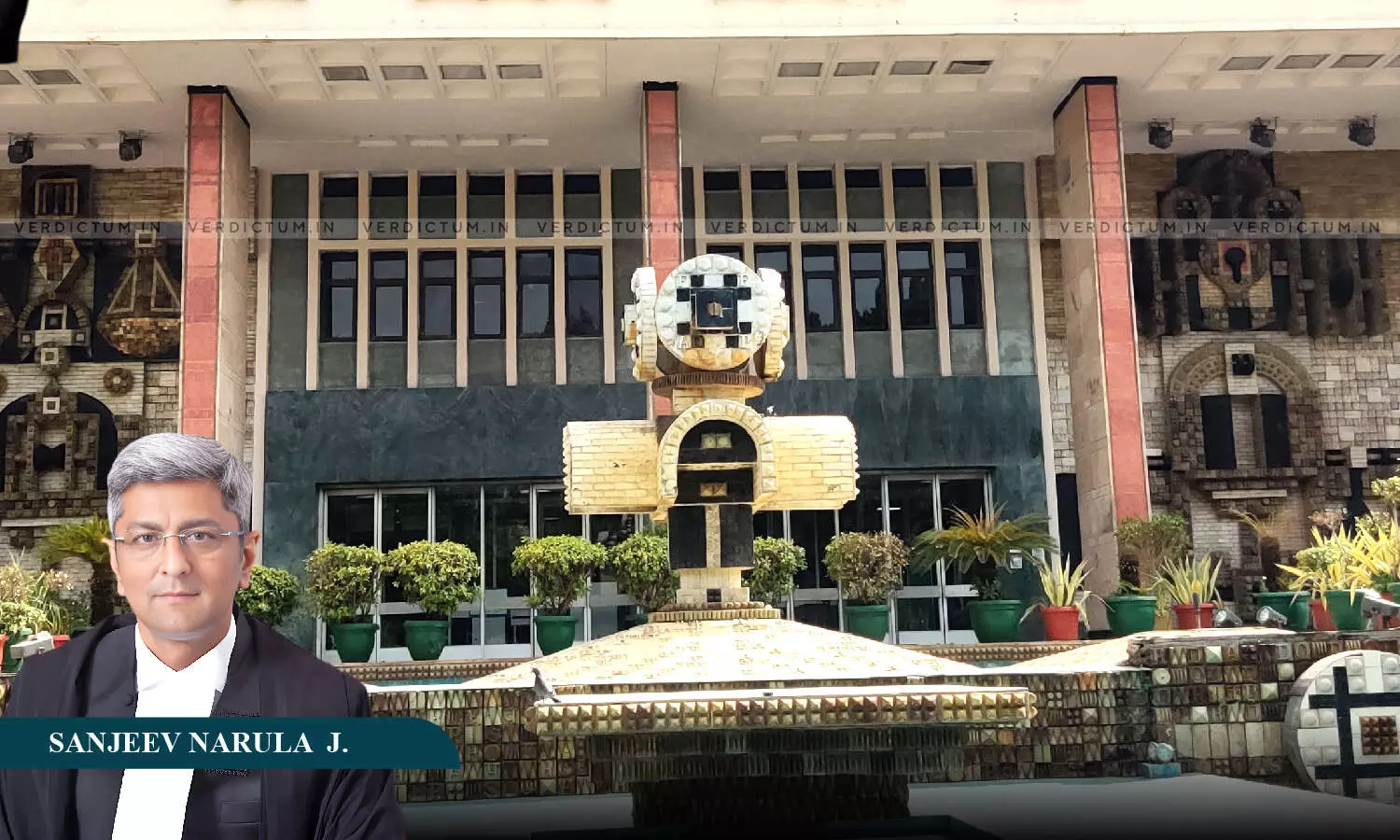
Justice Sanjeev Narula, Delhi High Court
Extra-Marital Relationship Per Se May Not Come Within Ambit of Sec.498-A IPC; No Blanket Prohibition Against Grant Of Bail In Every Case U/S.304B: Delhi High Court
 |
|The application before the Delhi High Court was filed under Section 483 of the Bharatiya Nagarik Suraksha Sanhita, 2023, seeking regular bail in a case registered under sections 498A,304B,34 of the Indian Penal Code.
While granting bail to a man in an alleged case of dowry death, the Delhi High Court has reiterated that an extra-marital relationship per se may not come within the ambit of Section 498-A IPC, and there is no blanket prohibition against the grant of bail in every case under Section 304B.
The application before the High Court was filed under Section 483 of the Bharatiya Nagarik Suraksha Sanhita, 2023 (formerly Section 439 of the Code of Criminal Procedure, 1973 ) seeking regular bail in the proceedings arising from a case registered under sections 498A/304B/34 of the Indian Penal Code, 1860.
Referring to the judgment in Shabeen Ahmad v. State of U.P (2025), the Single Bench of Justice Sanjeev Narula said, “However, the observations in Shabeen Ahmad cannot be read as laying down a blanket prohibition against the grant of bail in every case under Section 304B IPC. Rather, the Court reaffirmed that bail decisions must rest on the individual facts and circumstances of each case, the nature and weight of the evidence, and the overall context in which the allegations are situated.”
On the allegation that the applicant was involved in an illicit relationship with the co-accused, the Bench placed reliance upon the judgment in Ramesh Kumar v. State of Chhattisgarh (2001) and said, “The Supreme Court clarified that, an extra-marital relationship per se may not come within the ambit of Section 498-A IPC. In order to determine as to whether such a relationship amounts to cruelty to attract the offence under Section 306 IPC, the other essential ingredients of the said offence will also need to be satisfied, which will depend upon the specific facts and circumstances of each individual case.”
Advocate R.S. Juneja represented the Applicant while APP Amit Ahlawat represented the Respondent.
Factual Background
Information was received at the Police Station reporting that the wife of the applicant, aged 24 years, had been brought to the hospital by her husband (the Applicant) following an incident of alleged hanging. The attending medical officer at GTB Hospital declared her “brought dead”. The Co-accused produced a multicoloured chunni, stating it had been used by the deceased to hang herself from a ceiling fan in the bathroom.
The parents of the deceased alleged that the deceased had married the Applicant in the year 2022, and had since been subjected to physical and mental abuse by the Applicant and his family. Specific allegations included dowry demands, including a car, and claims that the marriage had not been consummated. An illicit relationship was also alleged between the Applicant and the co-accused. A chargesheet was filed before the Trial Court, and charges were framed against the Applicant and the co-accused under Sections 498A/304-B/34 IPC, and alternatively, Sections 306/34 IPC.
Reasoning
The Bench, at the outset, said, “The death of a young woman within a year of marriage, under unnatural circumstances, inevitably invites serious legal scrutiny. Yet, even in such tragic cases, the Court must assess whether the evidentiary foundation laid by the prosecution aligns with the statutory requirements.”
On a closer examination, the Bench found that prima facie the material on record revealed significant ambiguities and specificity that Section 304B IPC demands was lacking. The allegation of dowry demand, primarily the alleged demand for a car was mentioned only in the post-incident statements made by the family of the deceased. Pertinently, there was no contemporaneous complaint by the deceased, her parents, or any other relative during her lifetime alleging harassment or demand for dowry. “Prima facie, the record does not disclose any immediate or proximate instance of dowry-related cruelty or harassment that could satisfy the threshold of “soon before her death”, thereby creating further doubt in the Prosecution’s version”, it said.
The Bench further held, “ In the present case, the existence and fulfilment of such ingredients are issues to be adjudicated after conclusion of the trial. Nonetheless, at this preliminary stage, the Court is of the prima facie opinion that the invocation of Section 306 IPC does not warrant the denial of the relief of bail to the Applicant.”
It was also noticed that the father-in-law and brother-in-law of the deceased had already been discharged, and the sister-in-law, who faces identical charges as the Applicant, has been granted bail. Considering that the Applicant remained in judicial custody for over one year, he did not misuse the liberty of bail extended to him earlier, and the trial was likely to take time, the Bench directed the applicant to be released on bail on furnishing a personal bond for a sum of Rs 50,000 with two sureties. Few restrictions were also imposed by the High Court.
Cause Title: Karanjeet Singh v. State of NCT of Delhi (Neutral Citation: 2025:DHC:2820)
Appearance:
Applicant: Advocate R.S. Juneja, J.S. Juneja
Respondent: APP Amit Ahlawat, Advocates Aman Akhtar, Mohd. Imran, Shoaib Ikram, Rashid Khan, Inspector Arjun Singh